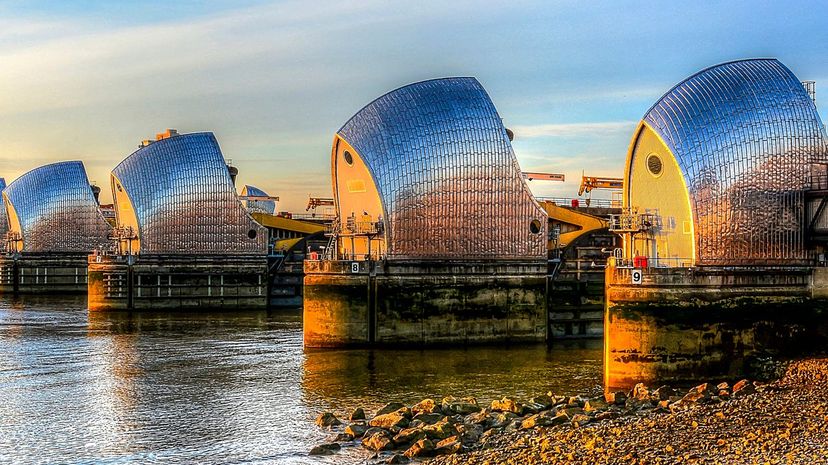
About This Quiz
Writer Dr. Samuel Johnson said, "When you're tired of London, you're tired of life." It's as true today as it was almost three hundred years ago when he said it. London is a truly enormous city that manages to be extremely well-populated, despite not being particularly dense and not having too much in the way of urban sprawl. You never feel too claustrophobic, as there's always a little park or a quiet church or a canal to stroll beside, where you can collect yourself.
London's cultural scene is second to none, with every kind of show available at almost every price point on any given night. The food scene has radically changed since the 1980s, when all the stores closed at 6 p.m. and the only quality international cuisine you could get was Indian food. Transit is much-maligned, but actually pretty decent (albeit expensive). The architecture is a particular joy, with layers of history all tangled up together. You can see how ancient villages grew into larger towns that eventually became the city.
Knowing how to navigate London means knowing a number of written and unwritten rules. It means knowing certain numbers and nicknames by heart, and being able to orient yourself without a grid. It means deducing who's in the mood to help you out and when to be tactful and leave someone alone. If you can manage all of that, you're a London genius.Â
Let's see if you make the grade!
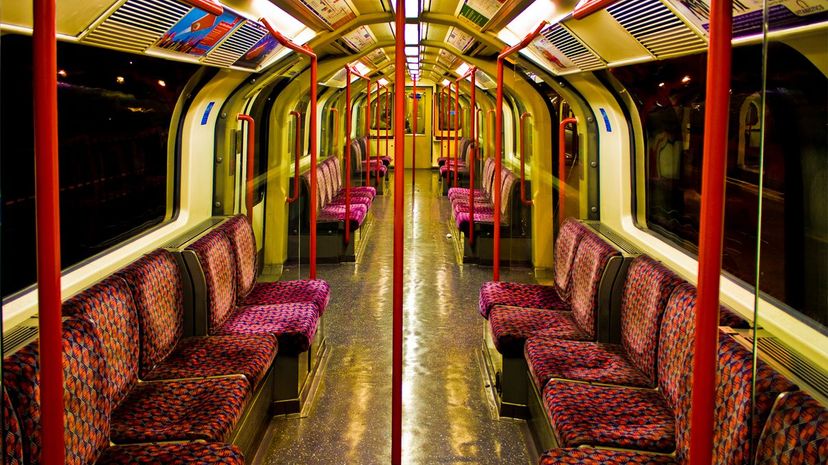
The first Tube lines opened in 1863 and were privately financed. These earlier lines, such as the Metropolitan, were built by the cut-and-cover method instead of bored directly through the rock. This is contrary to later deeper lines. The Tube serves 270 stations and carries just shy of 1.5 billion passengers per year.
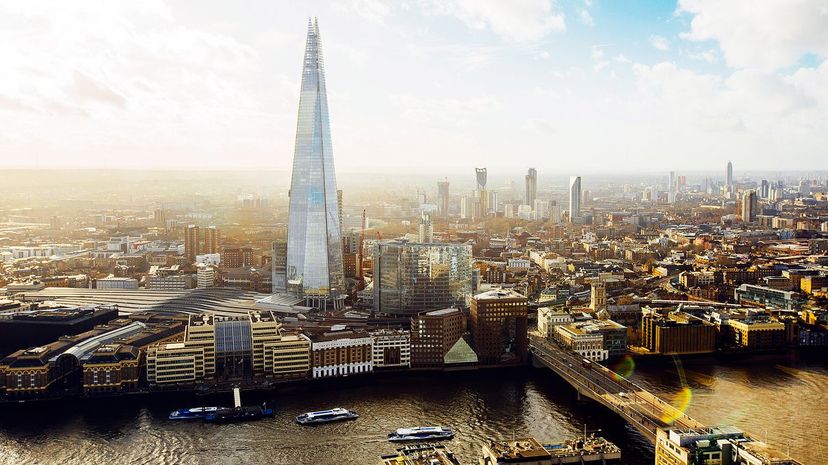
The Shard stands 1,004 feet high and is the tallest skyscraper in the whole of London. The builders tried to introduce it as London Bridge Tower, but the locals dubbed it the Shard, following the silly London tradition whereby the Swiss Re Building is known as the Gherkin. The Shard's owners decided to be smart and go along with their rather classy nickname, and now that is the building's official name.
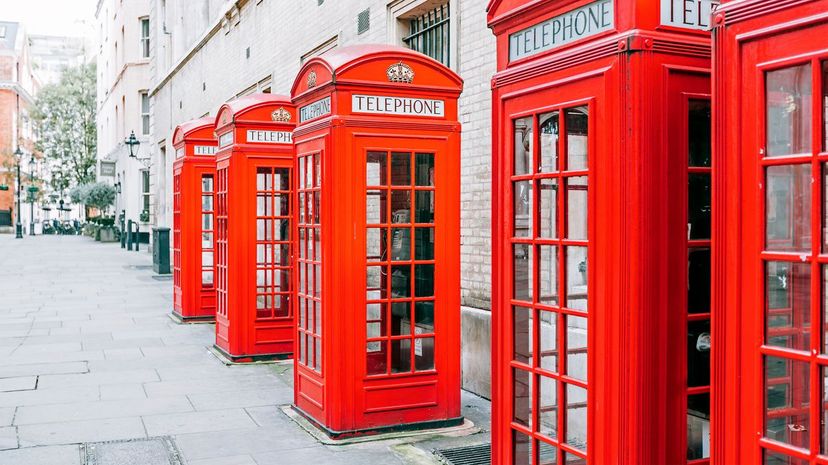
Originally 999 was the emergency number in the U.K. because it was available and easy to dial on a rotary phone. It stayed that way once keypads became more common. However, thanks to plenty of foreign visitors needing help, 911 and 112 (the American and European numbers) do actually work in the U.K. these days.
Advertisement
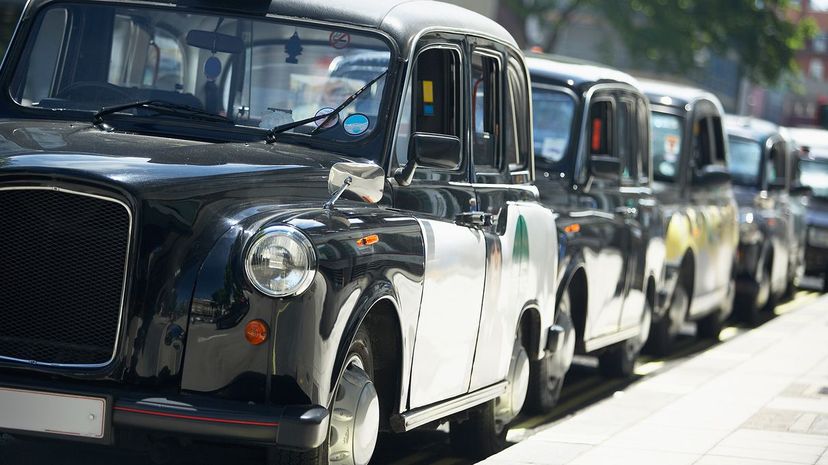
"The Knowledge" was essential before satellite navigation became common in all cars, and it takes two to four years to acquire. These days, other taxi services threaten the black cabs, but they really are a better service, albeit a pricier one. The drivers actually know where they're going and don't blindly follow a computer down a one-way alley that costs an extra twenty minutes, for a start.
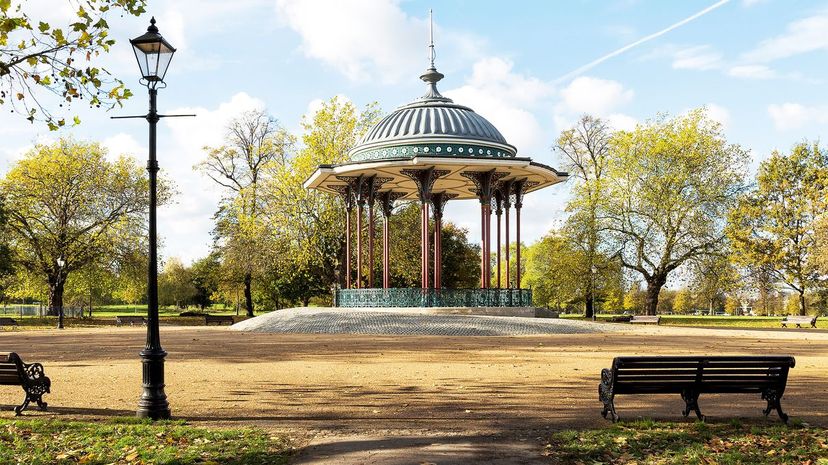
Clapham Common is on the south side of the Thames and, as such, was not considered to be in a very desirable area until recently. The Common was more commonly known for rather tawdry activities. Indeed, such activities in broad daylight cost a Member of Parliament his job back in 2003. Clapham has since become a vastly more respectable place.
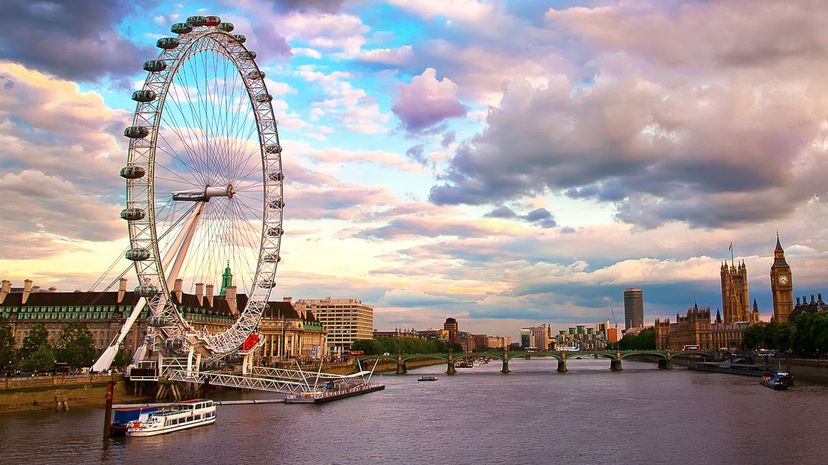
Officially, the London Eye opened in time for the millennium. (Don't @ us about the millennium actually starting in 2001.) Unofficially, it didn't open until March of 2000, due to issues with the capsules. While it was widely derided as ugly and pointless during construction, once it began operating everyone suddenly decided they had always loved it. Since then the wheel has been emulated by other cities all over the world!
Advertisement
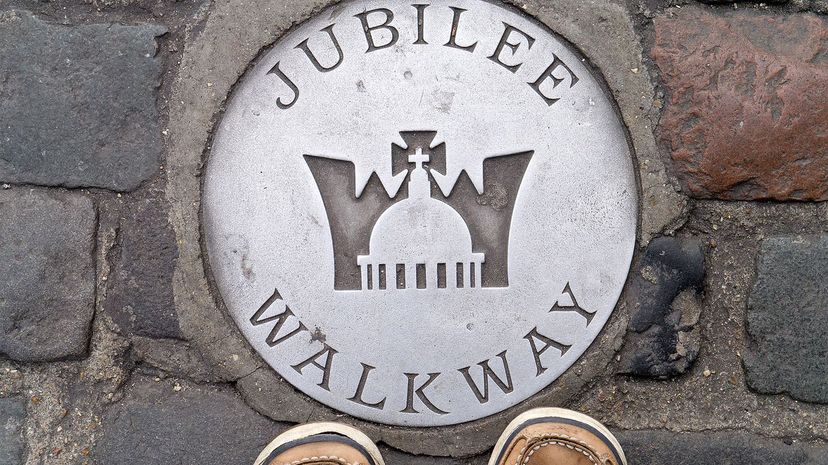
The Jubilee Walkway was built to celebrate the Queen's first 25 years of rule; it was first opened in 1977 and called the Silver Jubilee Walkway. The "Silver" was dropped after Her Majesty continued ruling for many more years. The Jubilee Walkway now connects a number of major London sites along the banks of the Thames, meaning that you can continuously walk or cycle on the river's edge. The route has some additional loops that take a walker into different parts of the city.
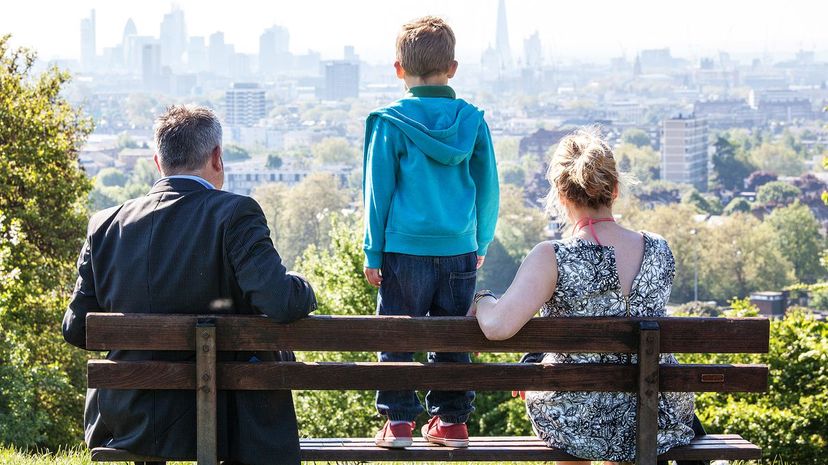
The Flagstaff on Hampstead Heath is the natural highest point in London, at 134 meters above sea level. This is higher even than Parliament Hill, often mistakenly thought to be the highest point in the city. London is not very hilly overall, but it has a few high viewpoints. Primrose Hill is one of the easiest to reach from the center of town, offering a great view of the city center.
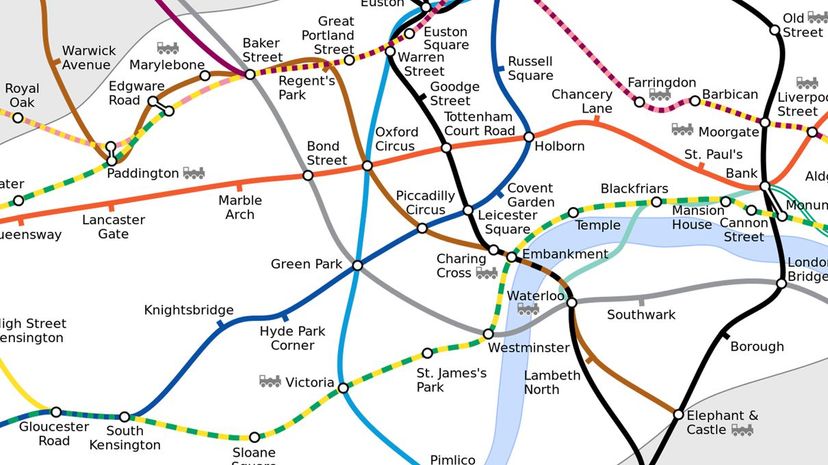
The Victoria Line is in pale blue. The London subway map is internationally recognized as one of the easiest to understand and navigate in the world. Once you know the lines, you may struggle to get lost, even if you want to! For all the system's faults, it is in very good shape, considering how ancient it is.
Advertisement
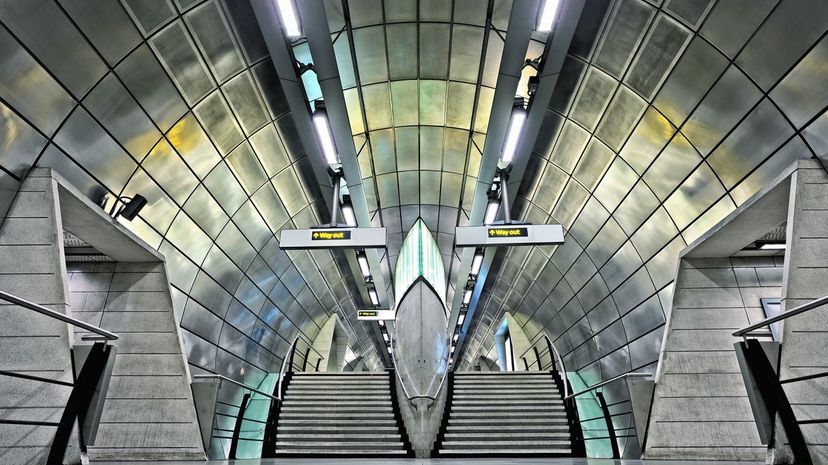
Oyster cards are useful, as they connect to your account and can thus be charged remotely. They also offer contactless card options, so you can just wave your wallet (possibly still in your pocket) at the gate where you enter the subway, and it'll count one ride. The only downside is that you have to remember to "tap out" when you leave the train, or you might be billed the wrong amount.
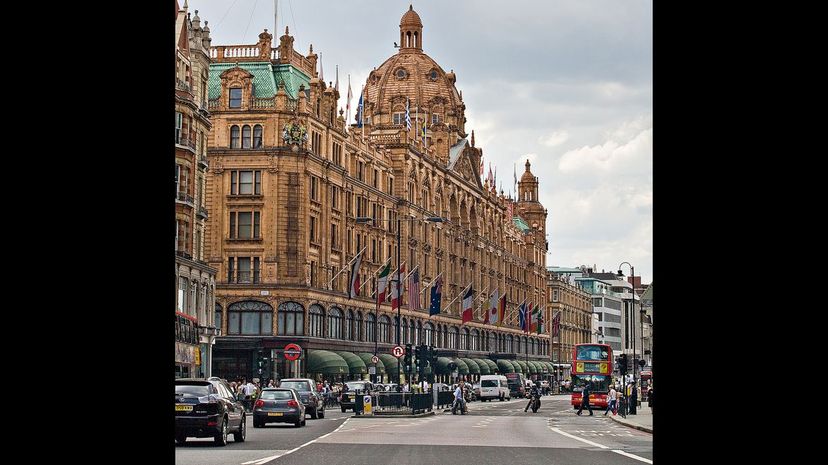
Harrods is a hilariously fancy department store in a very fancy part of town. As much of a tourist trap as it is a department store, it is popular with international visitors. You will generally hear every language in the world there. Harrods has a dress code, so make sure to cover your midriff, even if it is a warmer day.
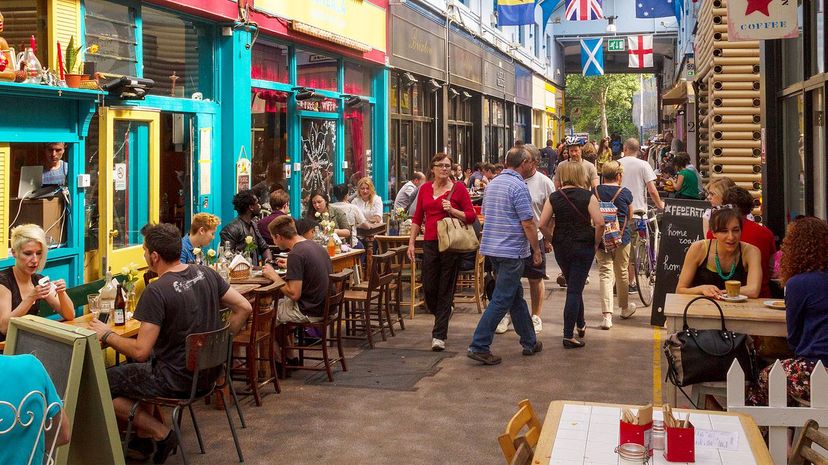
Old Spitalfields Market, Brixton Village Market, Rye Lane Market and Wood Street Market are all charming covered markets in London. A common feature of many British towns, covered markets are popular because they allow a good flow of people but require less in the way of building permits. It's never extremely hot or cold in London, so you don't have to worry much about the temperature.
Advertisement
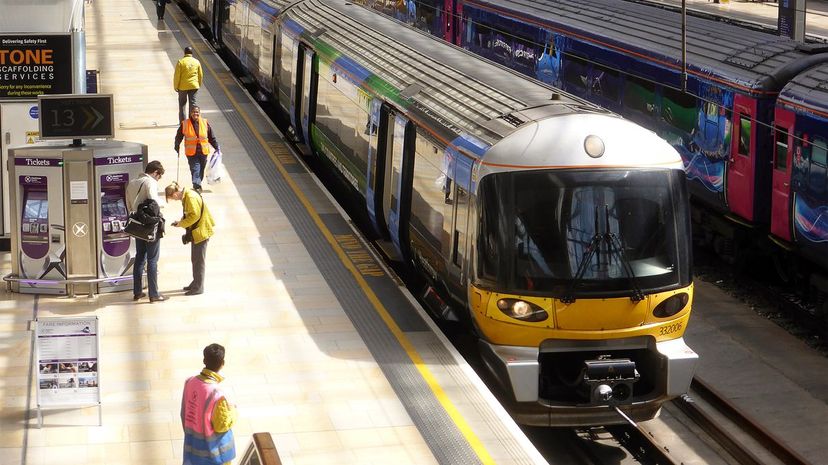
The Heathrow Express from Paddington Station is by far the best way to get to the airport. It takes fifteen minutes and goes every fifteen minutes, during most hours of the day. Sometimes you can even check your luggage in at the Paddington end. It's not cheap, but it is clean and efficient and has good onboard WiFi. It's a miracle that Londoners ever lived without it!
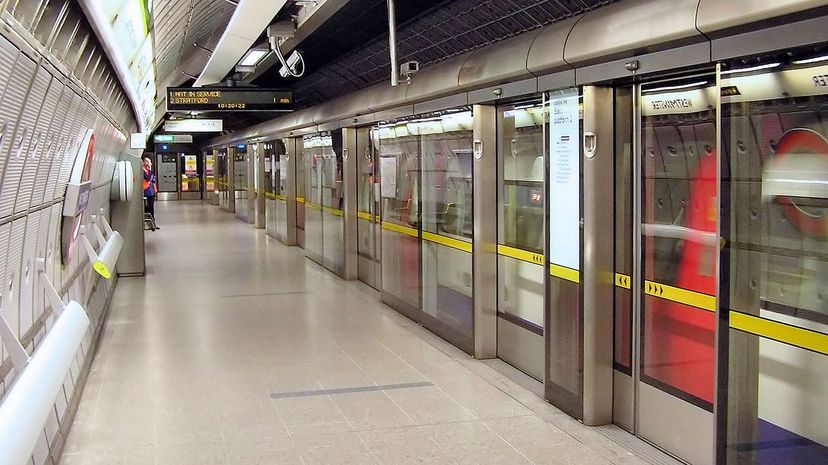
The Westminster Tube Station is a bizarre modernist sight to behold, but it is not a terminus - that is, no railway line ends there. Waterloo, King's Cross and Euston are all terminals where lines end. Other London terminals include Paddington, Liverpool Street, Fenchurch and others. Truly, all railways lead there!
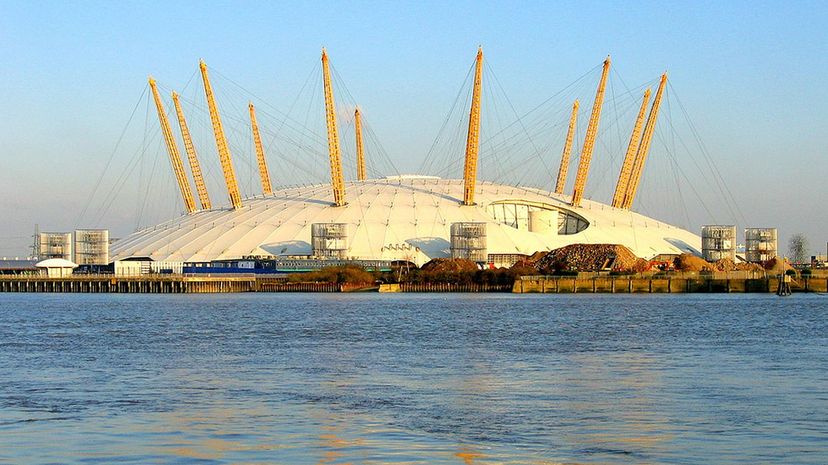
Built to celebrate the year 2000, the Millennium Dome was something of a joke when it was first constructed. For a start, everyone thought it wasn't going to be ready on time. Then, it turned out the builders had no plans for what to do with it after the New Year's Eve party. They had the last laugh, however, as it is now a very successful and much-loved concert venue, where hundreds of major stars have played.
Advertisement
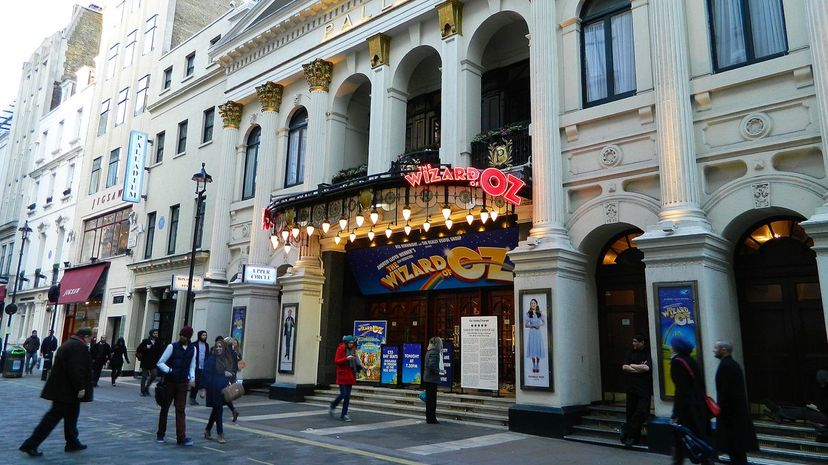
The Palladium has a vast 2,286 seats, but it doesn't feel as big as its Broadway counterparts, even those that are smaller. London theaters mostly predate the invention of the microphone, which is why they generally have incredible acoustics and feel very small, even when they are not. The Palladium can feel quite intimate, even though it is huge by theatrical standards.
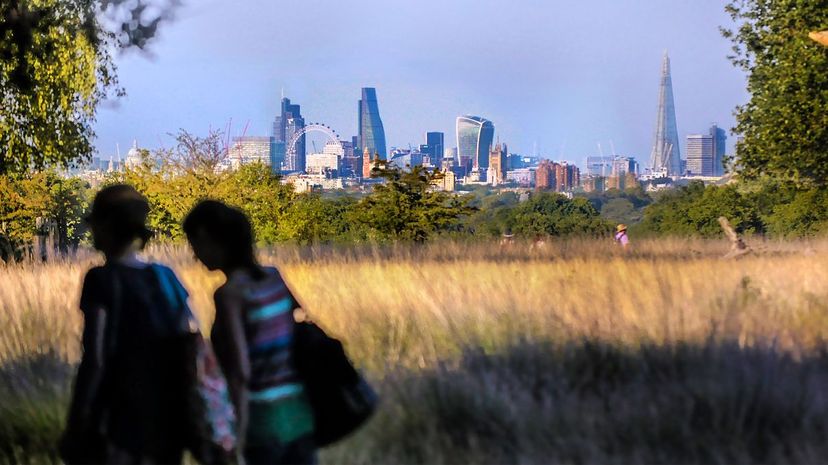
Richmond Park is 2,500 acres of public land, which is possible as it is at some distance from the center of London, in a leafy suburb. From its highest point, you can see St. Paul's Cathedral in the distance. The park is noted for its conservation work, with about 650 red and fallow deer currently in residence, which you can spot when you visit..
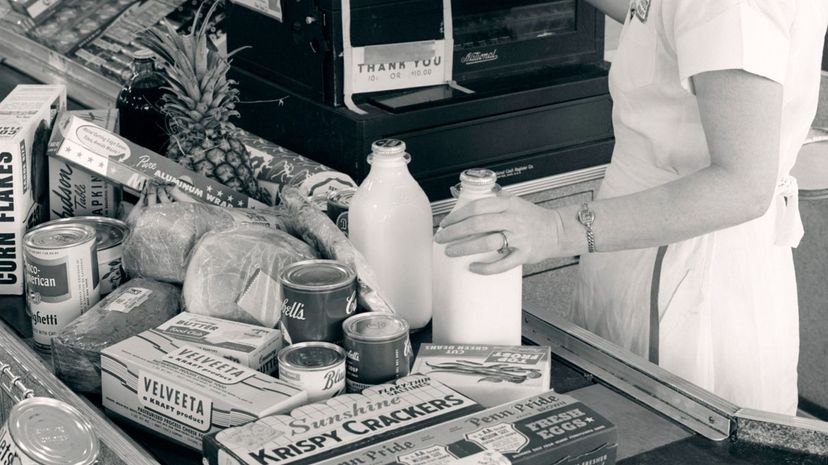
Touching the wares in a store used to be considered very rude, because you might be trying to steal something. Instead, you would talk to the shopkeeper while the assistant found your items using a list. Enter the supermarket, which had been functioning in the U.S. for twenty years by the time the U.K. got wind of it. With supermarkets now dominating food sales in the U.K., these establishments changed the game forever.
Advertisement
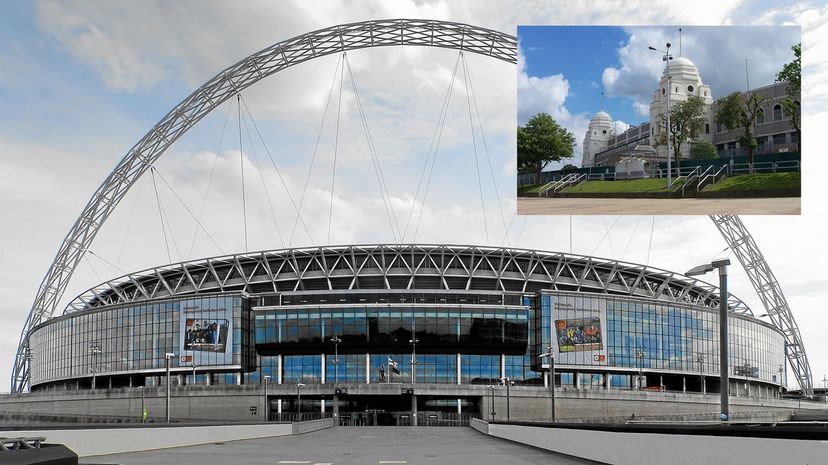
Wembley Stadium is where the English national football team plays. The original stadium was much beloved, but it had a small capacity and was basically falling down. It had to be replaced with the new one, recognizable from miles away by its distinctive hooped arch. Wembley is the second-largest stadium in Europe, with a capacity of 90,000.
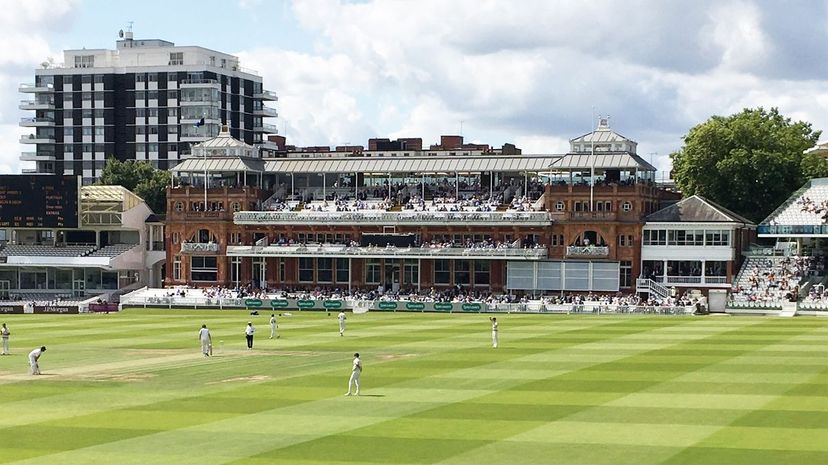
Lord's Cricket Ground - the oldest in the world - is considered to be the home of the game. It's just across the road from beautiful Regent's Park. Lord's is also conveniently just by the excellent Wellington Hospital, on the off chance that someone is either so full of strawberries and Champagne or so giddy with excitement from the game that they need assistance.
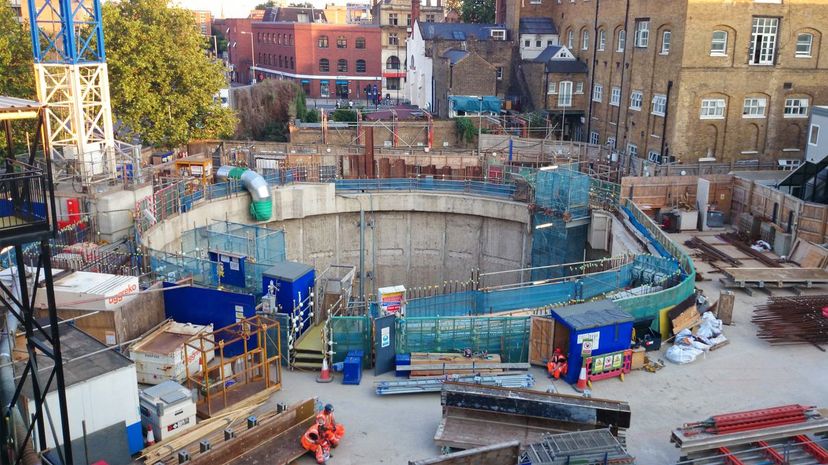
Crossrail has taken a lot longer and cost a lot more than was originally expected, to nobody's surprise. It has created a swift rise in prices in areas where a Crossrail station is being added. It has also made the East End far more accessible, which is mixed news to the people who live there. If you live in Central London, it'll remove the airport commuters from your local bus and train lines, which is good news!
Advertisement
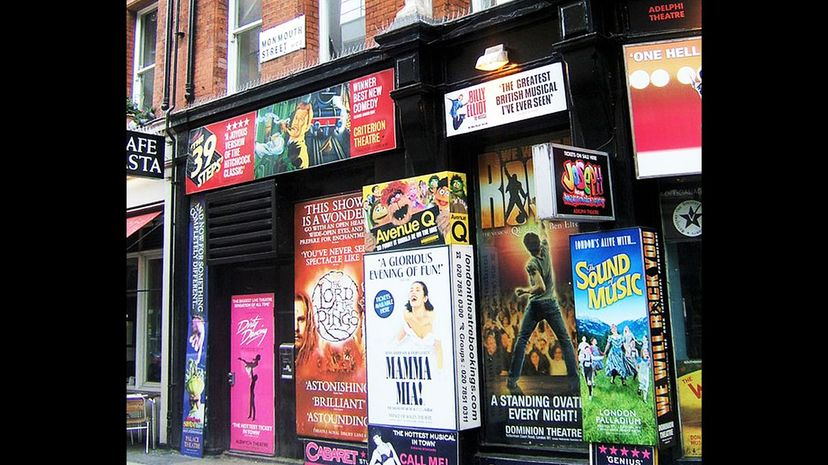
Theatreland, also known as the West End, is where the biggest and best theaters in London are to be found. These are venues like the Gielgud, Dominion and Garrick, where eminent theatrical figures such as Laurence Olivier have trodden the boards. West End shows are much cheaper than their Broadway counterparts, but no less worth checking out. Theatreland truly is a highlight of London.
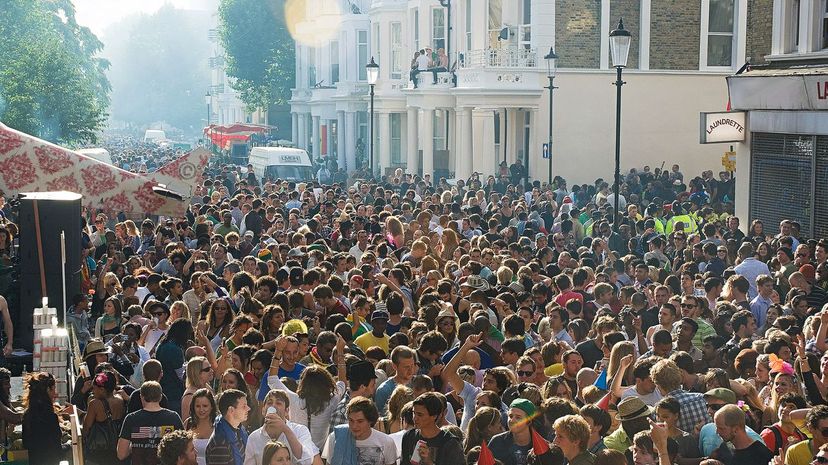
Notting Hill Carnival takes place every August and has over a million attendees. Guests enjoy a variety of bands playing in the streets, plus a procession and all sorts of different local stalls selling a variety of cuisines. Notting Hill is highly gentrified now, but it has not forgotten its roots.
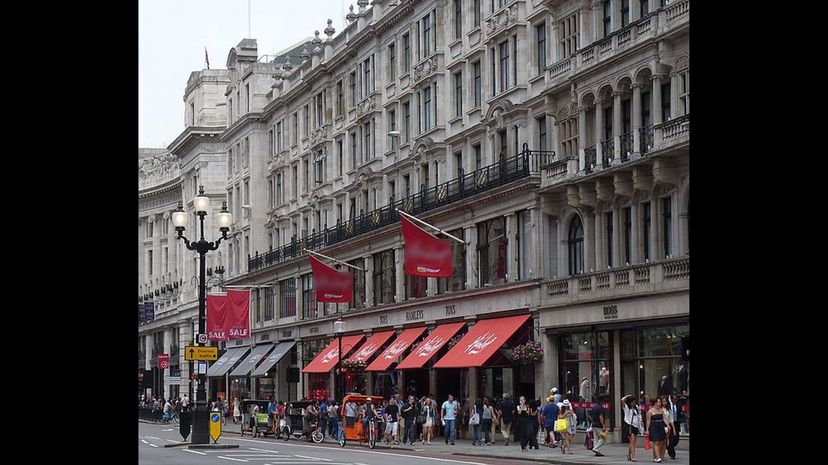
Hamleys is the happiest place in London for a little kid, being seven stories of toy store magic. It is as much an experience as it is just a store, full of jugglers and other amusements for the kids. It's located on Regent Street and priced to match, but it's a great place to visit at least once.
Advertisement
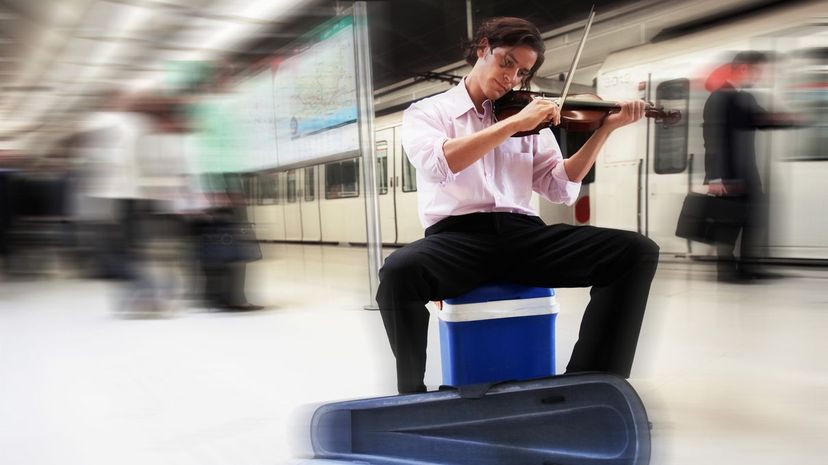
Busking was once illegal in the Tube, until the London Underground realized that the commuters like it and it wasn't doing any harm, as long as the music was good. Buskers have to audition to win the right to a spot - it's very lucrative. It's also nice for the commuters to have pleasant music and makes the subways safer late at night, with an extra set of eyes in the tunnels.
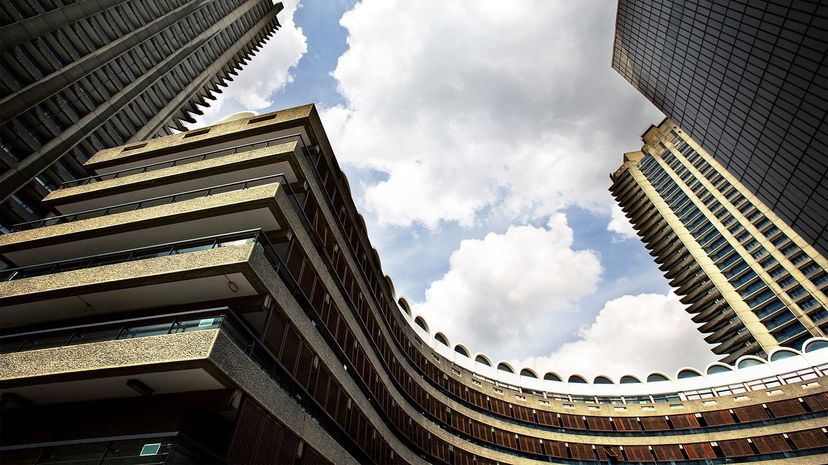
Architects Chamberlin, Powell and Bon built the Barbican, a brutalist masterpiece or abomination depending on your perspective. It is a tall residential structure, completed in the 1970s. Whether you love or loathe the building, it did a lot to regenerate the area between the river and Waterloo Station. The Barbican Centre joined the complex in 1982, as the new home of the Royal Shakespeare Company.
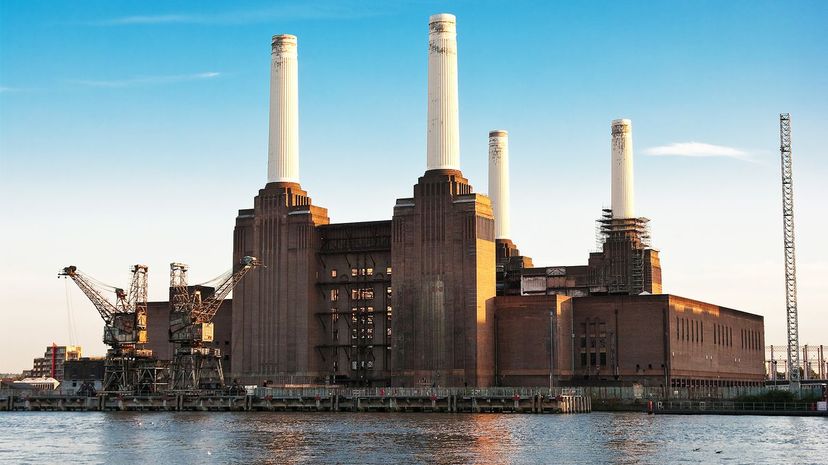
Battersea Power Station is one of the most recognizable features on the South Bank and has been through all sorts of failed redevelopment plans since 1983. It is finally being developed as a block of luxury apartments and a leisure center. However, people are quite upset with the delays, meaning the developers have faced a number of issues with buyers backing out.
Advertisement
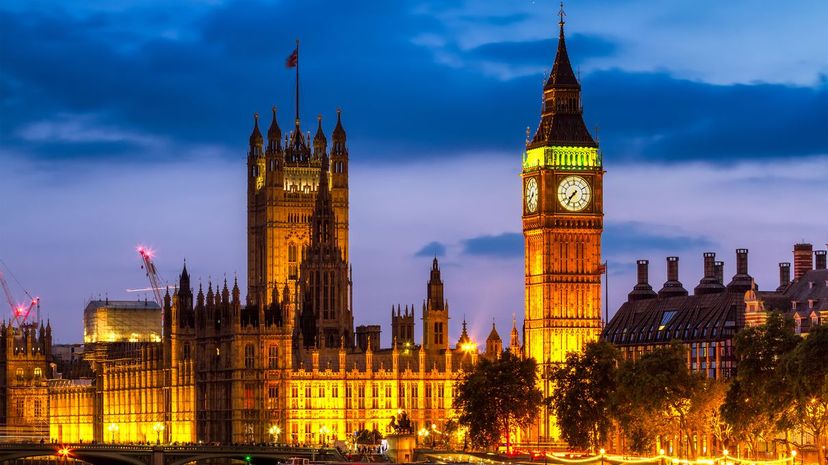
The tower that contains Big Ben is known as the Elizabeth Tower, though almost nobody ever calls it that. The building is known either as the Houses of Parliament or the Palace of Westminster. Technically, however, the name "Big Ben" refers only to the bell.
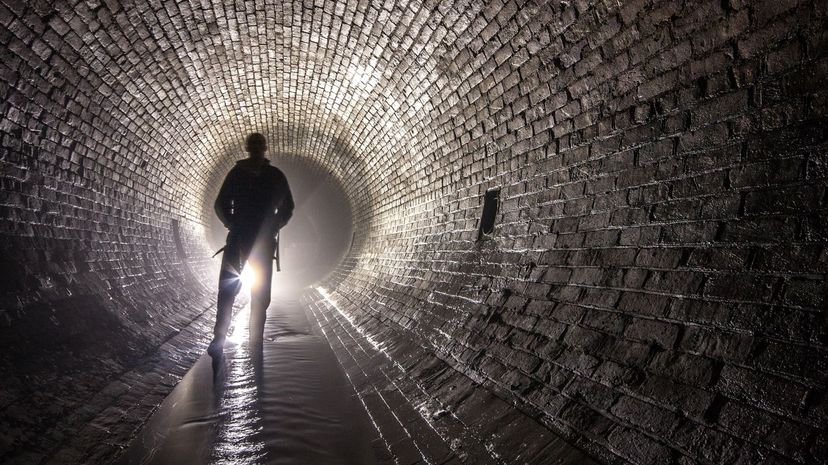
The Great Stink arose when the feeble and under-built sewers of London met the hot summer of 1858. Parliament was so hot that the MPs felt uncomfortable, but opening the windows - which are right above the Thames - made the smell so bad that they all felt sick. They finally hired Sir Joseph Bazalgette to build the current sewage system. These days, the Thames is so clean that you can catch a particularly fussy kind of shrimp out of it that is noted for only living in very unpolluted water!
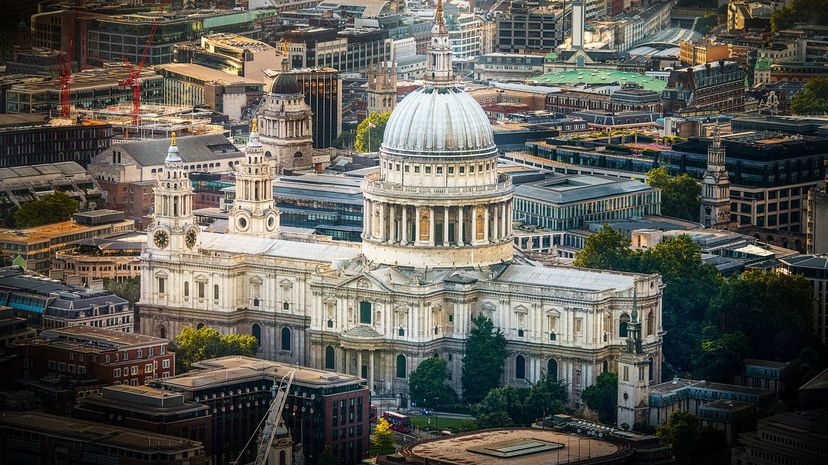
The dome of St. Paul's is 365 feet high and requires a visitor to climb a whopping 528 stairs. The view from the top is worth it, though, partly because London is very protective of the skyline around the cathedral and thus won't allow anything to block it. There are passing spots and places where you can rest on the way up, so don't be too intimidated if you need to go slowly!
Advertisement
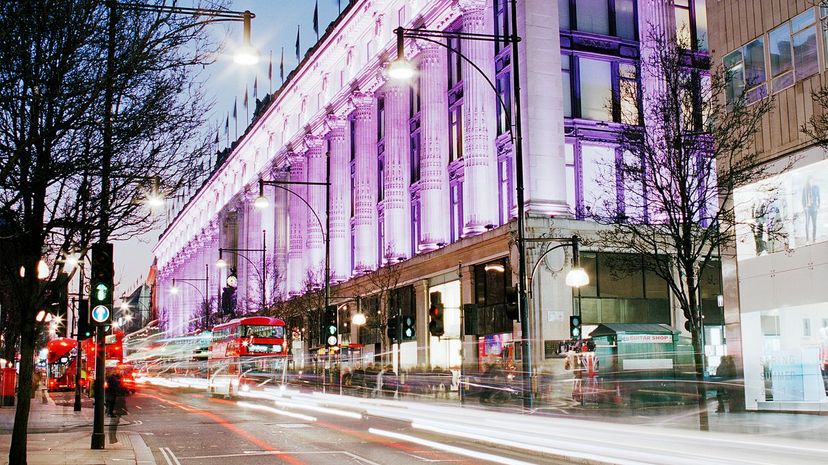
In 1909, Harry Gordon Selfridge opened the flagship venue that everyone knows these days. Masterpiece dramatized the early years of this department store with its series "Mr. Selfridge," starring Jeremy Piven, which ran from 2013 to 2016. This store dominates the west end of Oxford Street, where its columns mark it out from the crowd.
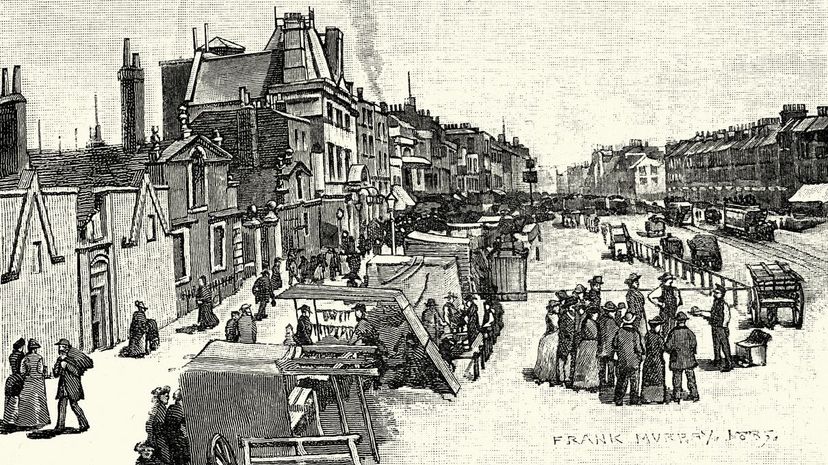
Whitechapel was not a good neighborhood in Victorian times, when Jack the Ripper was out and about. This famous London serial killer murdered a number of prostitutes in the area in 1888. His true identity was never discovered.
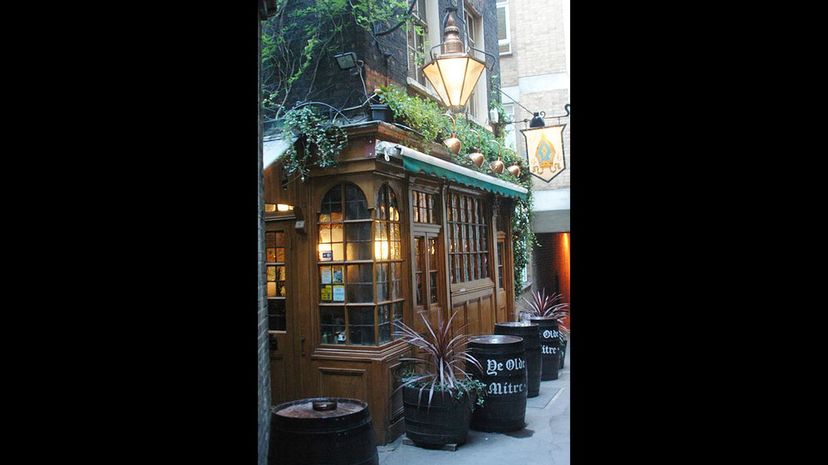
Founded in 1546, this pub claims to be the oldest in London. Many British pubs can prove that they are older, but they are outside the capital city. London has more pubs than anyone could possibly count, but this is a particularly historic and charming one.
Advertisement
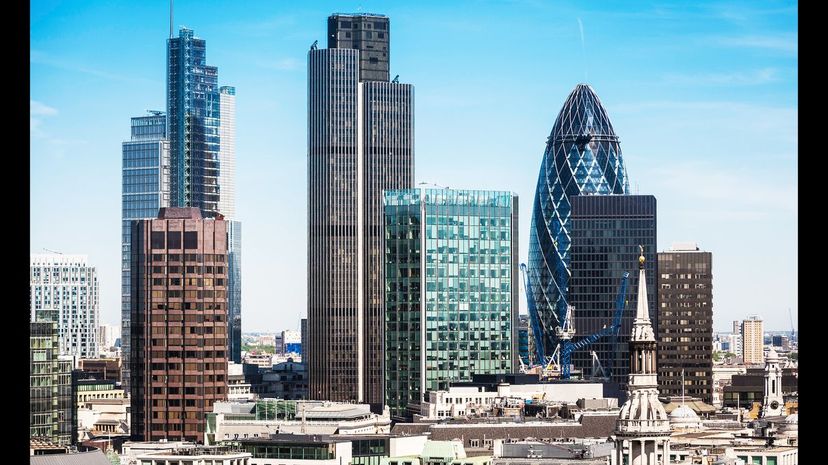
The oldest part of the city is known as the Square Mile because it takes up roughly a square mile. It's bang in the middle of Greater London and is noted for being home to all the most powerful financial services entities of London. Since the Brexit vote, international conglomerates have been moving out one by one.
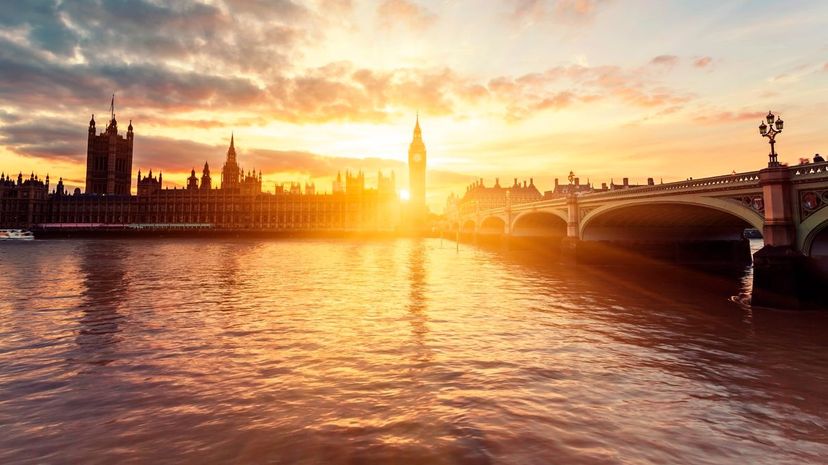
A typical July afternoon in London is 74 degrees F and pleasant. The Tube is disgusting, however, so bring water. The city is never hot or cold - in the winter it is a rare day that goes below 32 degrees F. London is a very temperate place, though changeable. The trick to dressing well there is all about layering and expecting rain!
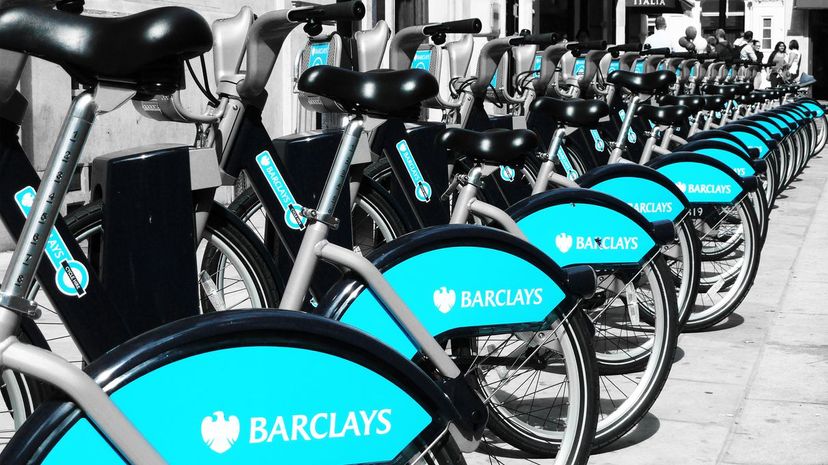
Boris Johnson was the mayor when these bikes were introduced, so they became known as Boris Bikes. Johnson is no longer the mayor, but the bikes retained their nickname. This is much to the chagrin of sponsor Santander Bank, formerly Barclays, which has unsuccessfully tried to get people to call them Santander Cycles for years now.
Advertisement
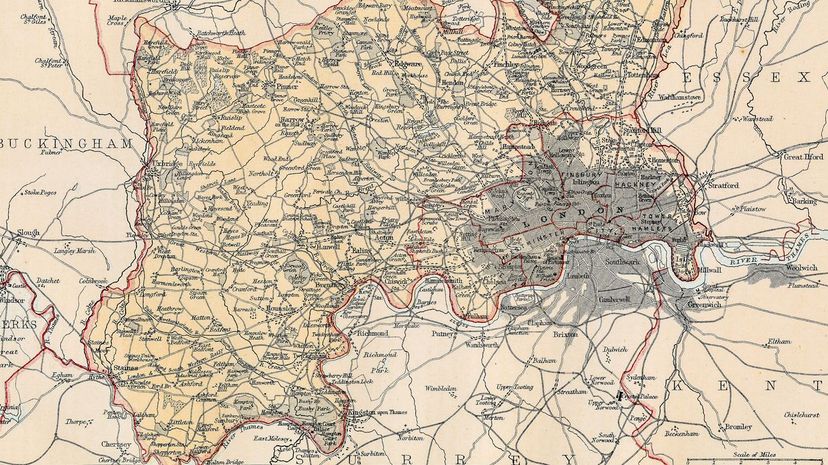
Middlesex was mostly gobbled up by London, which in 1888 became its own county. The other counties within easy reach of London are known as the Home Counties. These include Berkshire, Buckinghamshire, Essex, Hertfordshire, Kent, Surrey and Sussex. All of them are theoretically commutable to London, though woe betide anyone who actually chooses this lifestyle long term.
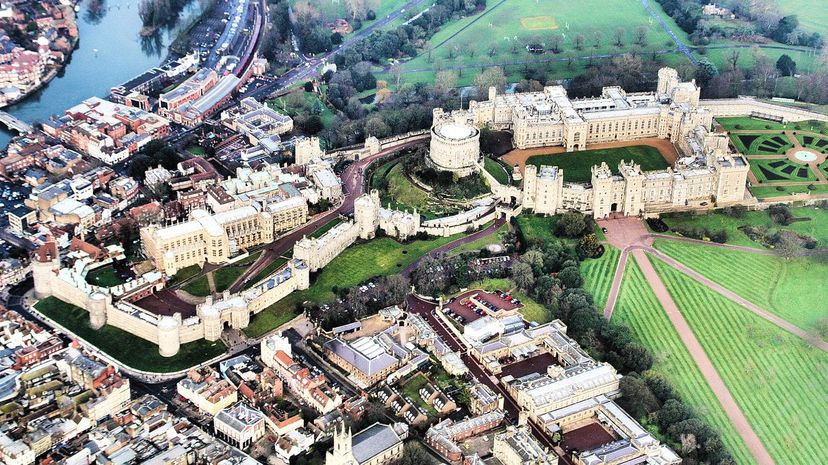
Windsor Castle can be found in the town of Windsor, in the County of Berkshire. Windsor is a commuter town outside London and a totally distinct entity! Clarence House, Kensington Palace and Buckingham Palace are all in London, within (reasonably ambitious) walking distance of one another. Windsor Castle is easily reached by train.
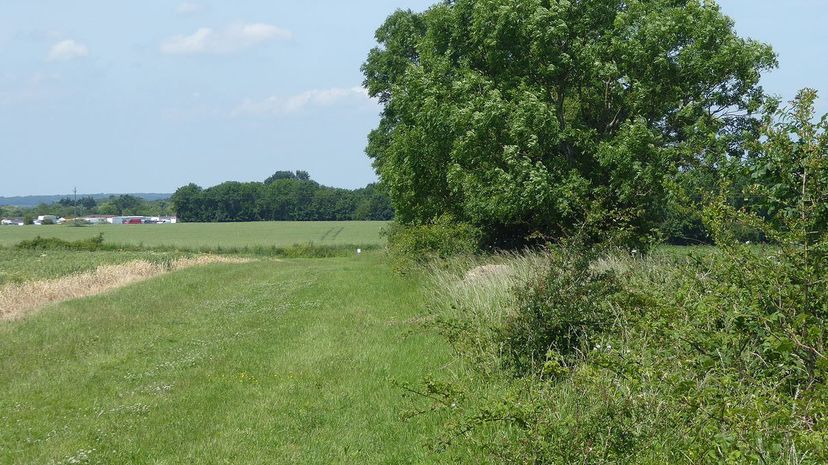
The Green Belt was innovated to prevent urban sprawl, and it has been stunningly successful. London is absolutely enormous, yet from the center of the city you can get in a car and drive in any direction, and you will see farmland within 90 minutes. While the Green Belt does artificially inflate city prices by preventing sprawl, infrastructure is simply not up to the task of introducing more housing - it is generally thought that higher density within London will be the longer-term solution to housing needs.
Advertisement
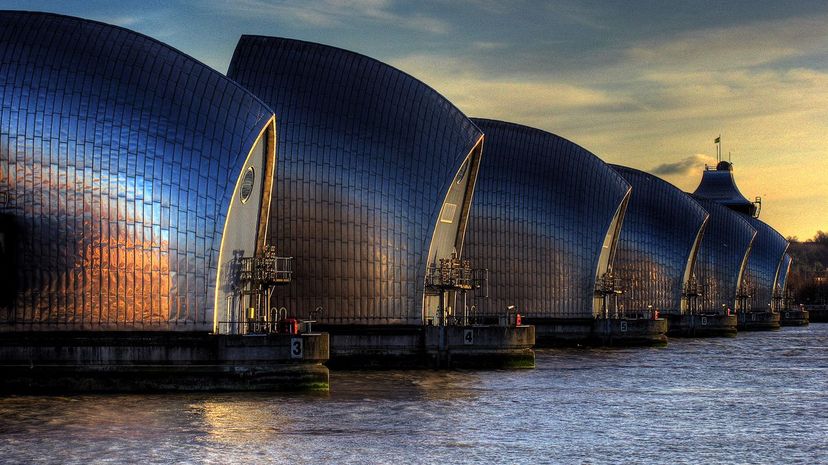
The Thames Barrier is a movable dam that has been operational for almost forty years, since 1982. It prevents flooding in the city center when there is a particularly high tide. Due to rising sea levels, a new and larger barrier will probably be built, closer to the sea, but for now, the current one does a great job.